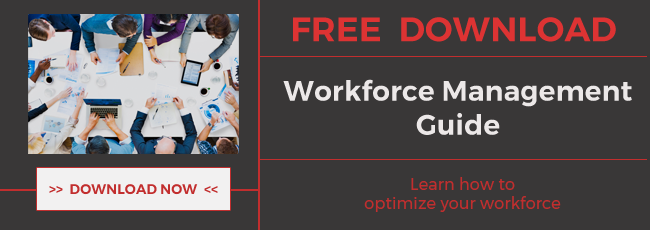Many organizations bring on new employees at the start of a new year and the process can be both exciting and overwhelming for the new hire. But it can be a challenge for management, as well, because onboarding effectively and successfully requires planning and intention.

An organization’s onboarding process should be determined by type of business and the size of the business, as well as by the company’s culture. What it should not be is brief and cursory.
Both the quality and depth of an organization’s new hire onboarding process have a significant effect on an employee’s long-term loyalty and performance. This has been tracked and studied over the years and the consensus is that onboarding matters.
For businesses this translates into higher employee retention rates along with lower acquisition costs, as well as greater ROI due to increased employee productivity. Effective onboarding helps to support and strengthen the culture of a company. And onboarding helps new employees understand and adapt to both the social and performance aspects of a company and their jobs.
And effective onboarding starts before your new employee actually comes on board. The Aberdeen Group found that integrating onboarding during the recruitment process can enhance a company’s long-term performance.
New Hire Onboarding Should Have a Plan
An article from the HR professional society SHRM points out that,
"New employee onboarding is the process of integrating a new employee with a company and its culture, as well as getting a new hire the tools and information needed to become a productive member of the team.
Onboarding new hires at an organization should be a strategic process that lasts at least one year, staffing and HR experts say, because how employers handle the first few days and months of a new employee's experience is crucial to ensuring high retention.”
This is, unfortunately, often not the case in many organizations. Onboarding is too often approached as a merely administrative task of signing forms, making a few introductions and ensuring that a workstation has been finally set up for the new hire.
Yet, successful onboarding involves far more than a one- or two-day approach that many companies practice. And it involves having a structured and documented plan.
When new hire onboarding is done well, it can lead to greater job satisfaction, lower turnover, higher performance levels, and lowered stress for the new member of your company.
Seven Top Best Practices for Onboarding
There are several considerations for the onboarding process of a new hire and many of these will vary depending on the type and size of a business. However, there are certain best practices that apply to every business for the process of successful onboarding:

Effective Onboarding Requires Structure and Planning
Having a documented structure and a plan is a requirement for any process to be successful in your business. This is equally true for your new hire onboarding process. Yet, this is one of the biggest problems with many businesses. Only a minimal amount of time and resources are provided for their new employee onboarding process.
And many of the same companies will often insist that employees are their "most valuable resources."
Undoubtedly, your organization values its employees. This should mean, then, that your employees are invested in from the very beginning with sufficient structured time, attention, and guidance. The reality, however, is that this is often not the case for many companies when it comes to onboarding.
An article from LinkedIn Business noted,
“Hiring managers frequently see onboarding as an afterthought with very little business impact. But you might be surprised to learn that data from the consulting firm BCG, reveals that onboarding ranks #2 (after recruiting) with the second highest business impact of all of the 22 HR practices. In fact, firms that execute it well can expect to nearly double their corporate revenue growth and profit margins, compared to firms with only average onboarding.”
In smaller companies, people tend to know each other and the leaders of the organization well. They know how things work in the company and they have a good understanding of their own roles there. This can lead to the misplaced assumption that new employees will simply fall into the same place with little guidance or input.
Having a comprehensive and documented new hire onboarding process, on the other hand, can eliminate the negative impact of this assumption.
Your Workforce Management Partner
In addition to a growing and demanding role in recruiting, hiring, and continually training employees, the HR staff is responsible for other functions such as payroll management, tax filings, employee records compliance, and so forth.
Considering alternatives such as outsourcing is increasingly becoming a cost-effective and strategic option. Accuchex can help you in managing your HR needs, payroll processes, and staying on top of compliance demands. Get your Free Download: Payroll Outsourcing Guide to help you make an informed decision or call Accuchex Payroll Management Services at 877-422-2824.




